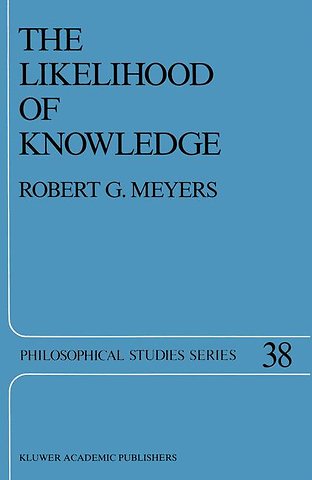The Likelihood of Knowledge
Samenvatting
It is convenient to divide the theory of knowledge into three sets of problems: 1. the nature of knowledge, certainty and related notions, 2. the nature and validi ty of the sources of knowledge, and 3. answers to skeptical arguments. The first set includes questions such as: What is it to know that something is the case? Does knowledge imply certainty? If not, how do they differ? What are the con ditions of knowledge? What is it to be justified in accepting something? The sec ond deals with the ways in which knowledge can be acquired. Traditional sources have included sources of premisses such as perception, memory, in trospection, innateness, revelation, testimony, and methods for drawing conclu sions such as induction and deduction, among others. Under this heading, philosophers have asked: Does innateness provide knowledge? Under what con ditions are beliefs from perception, testimony and memory justified? When does induction yield justified belief? Can induction itself be justified? Debates in this area have sometimes led philosophers to question sources (e. g. , revela tion, innateness) but usually the aim has been to clarify and increase our understanding of the notion of knowledge. The third class includes the peren nial puzzles taught to beginning students: the existence of other minds, the problem of the external world (along with questions about idealism and phenomenalism), and more general skeptical problems such as the problem of the criterion. These sets of questions are related.
